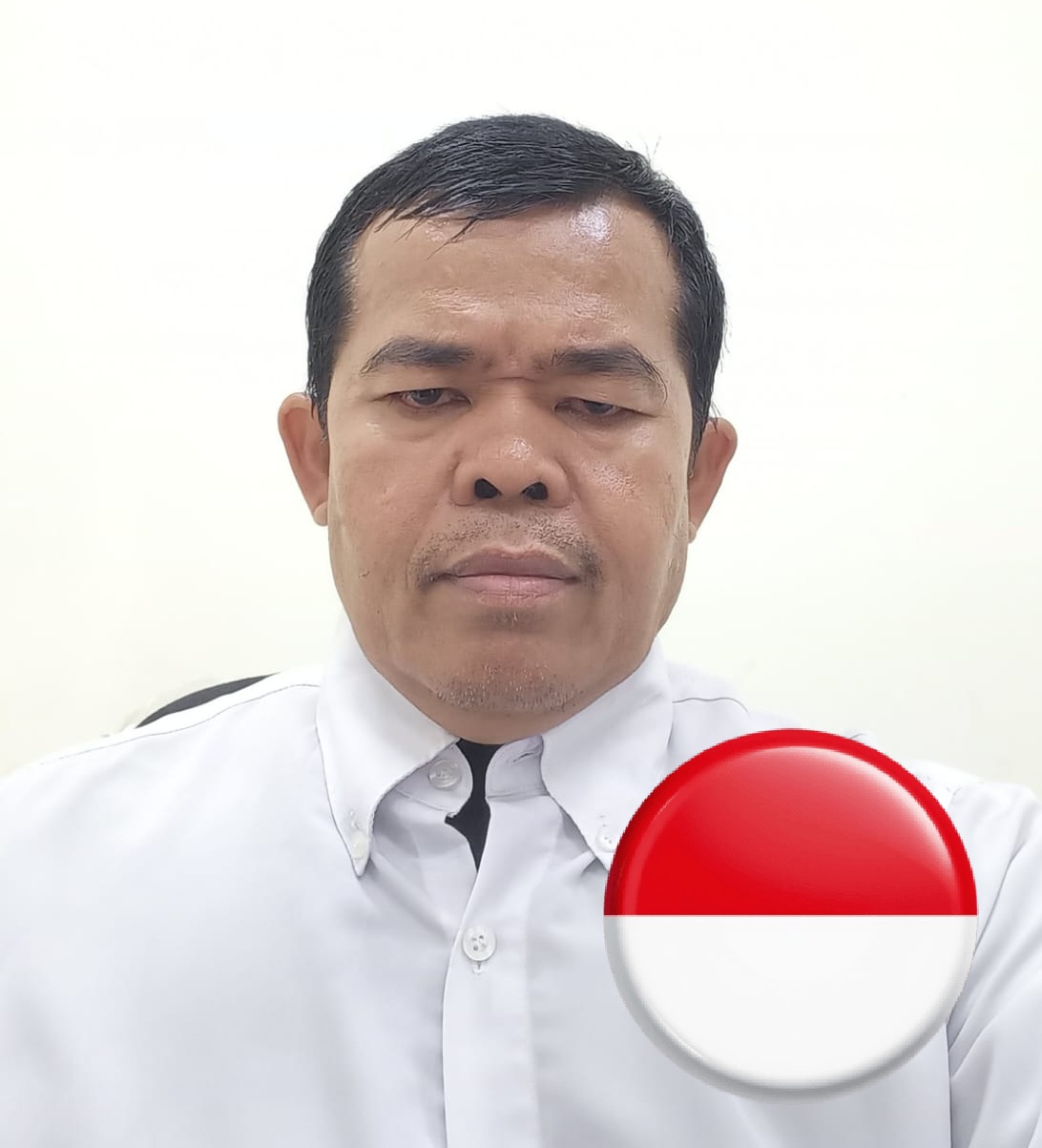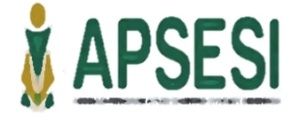ISLAMIC WEALTH MANAGEMENT IN MOSQUE FINANCIAL MANAGEMENT (CASE STUDY OF KAUMAN GREAT MOSQUE, YOGYAKARTA)
Abstract
A mosque is a sacred site of worship for Muslims. The mosque typically solicits contributions from the congregation to fund its activities. To be accountable for the congregations, therefore, the administrators of the mosques should practice sound financial administration. This study seeks to analyze Masjid Gedhe Kauman (Great Mosque Kauman), one of the oldest mosques in Yogyakarta, Indonesia, based on Islamic wealth management. It also has a wealth of historical significance due to Java's lengthy history of Islamization. It was situated around Kraton Palace, one of the ancient Javanese giant kingdoms. Islamic wealth management encompasses wealth creation, wealth accumulation, wealth protection, wealth purification, and wealth distribution. The data was collected by interviewing the mosque administrator, documenting the financial report, and observing the activities. The results indicate that the Kauman Great Mosque in Yogyakarta has not yet fully implemented the Islamic Wealth Management concept into its financial management. Wealth accumulation and wealth purification have not yet received sufficient attention from mosque administrators. Authority status, government policies, and ownership are the primary obstacles to developing mosque financial management. The majority of the funds for the Kauman Great Mosque in Yogyakarta originate from infa (alms). The fund prioritizes initiatives associated with mosques. The discovery also reveals a lack of transparency in financial management, as the congregation does not have access to the financial report despite the inactive fund exceeding one billion rupiah. The study proposes the implementation of contemporary financial management strategies in order to bolster self-reliance, foster the productive utilization of mosque assets, and prioritize the safeguarding of wealth.
Keywords
Full Text:
PDFReferences
Adil, M. A. M., Mohd-Sanusi, Z., Jaafar, N. A., Khalid, M. M., & Aziz, A. A. (2013). Financial Management Practices of Mosques in Malaysia. Global Journal Al-Thaqafah, 3(1), 23–30. https://doi.org/10.7187/GJAT302013.03.01
Adnan, M A. (2013). An Investigation of the Financial Management Practices of the Mosques In The Special Region of Yogyakarta Province , Indonesia. Sharia Economics Conference, 118–130.
Adnan, Muhammad Akhyar. (2016). The Financial Management Practices of the Mosques in the Special Region of Yogyakarta Province, Indonesia. Tazkia Islamic Finance and Business Review, 8(2), 120–142. https://doi.org/https://dx.doi.org/10.30993/tifbr.v8i2.65
Alam, N., Gupta, L., & Shanmugam, B. (2017). Islamic Wealth Management. In Islamic Finance (pp. 451–473). Palgrave Macmillan, Cham.
Ali, N., Said, J., Omar, N., Rahman, R. A., & Othman, R. (2012). Financial Reporting Disclosure: Evidence from Malaysian Non Profit Organizations. British Journal of Economic, Finance and Management Sciences, 4(2), 16–30. https://doi.org/10.1017/CBO9781107415324.004
Andarsari, P. R. (2016). Laporan keuangan organisasi nirlaba (lembaga masjid). In Jurnal Ekonika: Jurnal Ekonomi Universitas …. fe.unik-kediri.ac.id. http://fe.unik-kediri.ac.id/wp-content/uploads/2016/09/4.-Pipit-Rosita-Andarsari-143-152.pdf
Ariff, M. (2017a). Islamic Wealth Management: Theory and Practice. In M. Ariff & S. Mohamad (Eds.), Islamic Wealth Management. Edward Elgar Publishing. https://doi.org/10.4337/9781786439390.00023
Ariff, M. (2017b). Wealth management, its definition, purpose, structure and practices. In M. Ariff (Ed.), Islamic Wealth Management2. Edward Elgar Publishing Limited.
Ariff, M., & Mohamad, S. (2017). Wealth as understood in economics and finance. In M. Ariff (Ed.), Islamic Wealth Management. Edward Elgar Publishing Limited.
Ariffin, M. Z., Ahmad, J. H., Ahmad, W. N. W., Fauz, W. N. A. W., & Zakaria, M. (2019). Financial Recording and Reporting Practices for Mosques – A Study On Mosques In The District Of Machang, Kelantan. E-Proceedings of 6th International Conference on Mosque, Zakat and Waqf Management (IMAF-2019), October, 257–268.
Ashfaq, M., Abdelwahab, H. R., Aziz, S., & Sharif, S. (2022). Wealth Creation and Management in Islam. In Wealth Management and Investment in Islamic Settings: Opportunities and Challenges (pp. 73–89). Springer Nature. https://doi.org/10.1007/978-981-19-3686-9_5
Azid, T., Altwijry, O. I., Rewashadeh, O., & Shirazi, N. (2022). A Path Towards Success for Muslim Households: Wealth Management and Shari’ah Rulings. In Wealth Management and Investment in Islamic Settings: Opportunities and Challenges (pp. 395–407). Springer Nature. https://doi.org/10.1007/978-981-19-3686-9_22
Bakar, A. A., Fauzi, N. S. M., & Hashim, H. (2020). Hibah As A Way of Islamic Wealth Management. Webology, 17(2), 896–903. https://doi.org/10.14704/WEB/V17I2/WEB17075
BAZNAS. (2020). Outlook Zakat Nasional 2020. In Puskas Baznas. https://www.puskasbaznas.com/publications/books/1113-outlook-zakat-indonesia-2020
Beik, I. S., & Arsyianti, L. D. (2021). How Islamic ethical wealth may strategically and technically support SDGs plan? In Islamic Wealth and the SDGs: Global Strategies for Socio-Economic Impact (pp. 53–67). Springer International Publishing. https://doi.org/10.1007/978-3-030-65313-2_3
Beik, I. S., Swandaru, R., & Rizkiningsih, P. (2021). How Islamic ethical wealth may strategically and technically support “zero hunger” scheme? In Islamic Wealth and the SDGs: Global Strategies for Socio-Economic Impact (pp. 257–271). Springer International Publishing. https://doi.org/10.1007/978-3-030-65313-2_13
Beik, I. S., Zaenal, M. H., & Saoqi, A. A. Y. (2021). How Islamic ethical wealth may strategically and technically support “reduced inequality” mission? In Islamic Wealth and the SDGs: Global Strategies for Socio-Economic Impact (pp. 359–372). Springer International Publishing. https://doi.org/10.1007/978-3-030-65313-2_18
Darus, F., Yusoff, H., Zain, M. M., & Ramli, A. (2021). Corporate Waqf: A sustainable model of Islamic wealth creation and distribution. International Journal of Economics and Business Research, 22(4), 357–368. https://doi.org/10.1504/IJEBR.2021.118425
Davis, M. (2015). Entrepreneurship and Wealth Creation Within An Islamic Context. In E. Consulting (Ed.), Islamic Wealth Management Report 2015 (Issue December). Labuan IBFC.
Fahmi, R. A. (2017). Manajemen Keuangan Masjid di Kota Yogyakarta. Al-Tijary Jurnal Ekonomi Dan Bisnis Islam, 3(1), 69–86. https://doi.org/10.21093
Femi, O. T., Babajidemichael, O., & Abosede, A. V. (2016). Comparative Analyses of Strategic Financial Management Practices in Faith-based and Community-interest Organizations. Journal of Financial Studies & Research, 2016(October), 1–14. https://doi.org/10.5171/2016.381395
Firdaus, A., & Ismail, N. (2014). Using Maslahah Performa As an Islamic Wealth Management System. Thematic Workshop on Al-Mal: Philosophy and Its Application in Islamic Perspective, December. https://www.researchgate.net/publication/290184045%0AUSING
Henderson, J. C. (2003). Managing tourism and Islam in Peninsular Malaysia. Tourism Management, 24(4), 447–456. https://doi.org/10.1016/S0261-5177(02)00106-1
Hussin, M. Y. M., Muhammad, F., Razak, A. A., & Habidin, N. F. (2014). Exploratory analysis on mosque fund in Perak. Jurnal Syariah, 22(1), 1–20.
Is’adi, M. (2015). Konstruksi Laporan Keuangan Masjid Berbasis Syari’ah. Al-Mashraf, 2(1), 159–182. http://ejournal.iain-jember.ac.id/index.php/almashraf/article/download/304/300
Is’adi, M., Roziq, A., & Wardayati, S. M. (2017). Empowerment and Accountability Report of Jami ’ Mosque Al baitul Amien Jember Foundation. Public Policy and Administration Research, 7(11), 47–52.
Ismail, A. G. (2010). Islamic banks and wealth creation. ISRA Research Paper No. 9/2010, Kuala Lumpur, 1966, 16.
Ismail, N, Shafii, Z., & Akbar, N. (2022). Decoding Islamic Wealth Management from Qur’anic Texts. In Wealth Management and Investment in Islamic Settings: Opportunities and Challenges (pp. 27–41). Springer Nature. https://doi.org/10.1007/978-981-19-3686-9_2
Ismail, Nurizal, & Antonio, M. S. (2012). The Islamic Wealth Management: An Analysis From Ibn Sīnā’s Perspective. Journal of Islamic Thought and Civilization, 2(1), 19–36.
Jazeel, M. I. M. (2014). Financial Management Practices of Mosques in Sri Lanka: An Observation. Proceedings of the 4th International Syimposium, SEUSL, 544–548.
Kamri, N. ‘Azzah, & Daud, M. Z. (2011). Islamic Wealth Management: a Review on the Dimension of Values. Shariah Journal, 19(3), 187–212.
Kessler, K. (2015). Conceptualizing Mosque Tourism: A central feature of Islamic and Religious Tourism. International Journal of Religious Tourism and Pilgrimage, 3(2), 23. https://doi.org/10.21427/D7RB0G
Kismawadi, E. R., Al Muddatstsir, U. D., & Sawarjuwono, T. (2018). Accountability and Innovative Financial Reporting To the Mosque. International Journal of Organizational Innovation, 10(4), 101–110. http://eserv.uum.edu.my/docview/2028835216?accountid=42599
Mahmud, M. S., Foziah, H., Ghazali, P. L., Rashid, N. M. N. N. M., & Yazid, A. S. (2019). Islamic wealth management towards retirement planning among private sector workforce in Malaysia. International Journal of Recent Technology and Engineering, 8(3), 7100–7103. https://doi.org/10.35940/ijrte.C5841.098319
Mohamed, I. S., Aziz, N. H. A., Masrek, M. N., & Daud, N. M. (2014a). Mosque Fund Management: Issues on Accountability and Internal Controls. Procedia - Social and Behavioral Sciences, 145, 189–194. https://doi.org/10.1016/j.sbspro.2014.06.026
Mohamed, I. S., Aziz, N. H. A., Masrek, M. N., & Daud, N. M. (2014b). Mosque Fund Management: Issues on Accountability and Internal Controls. Procedia - Social and Behavioral Sciences, 145, 189–194. https://doi.org/10.1016/j.sbspro.2014.06.026
Mohamed, I. S., Masrek, M. N., Mohd Daud, N., Arshad, R., & Omar, N. (2015). Mosques Fund Management: A Study on Governance and Internal Controls Practices. The 9th International Conference on Management, Marketing and Finances, 45–50.
Muchlis, S., Sukirman, A. S., & Ridwan, R. (2019). Accountability and Management Transparency Masjid Finance Based on Principles Aman and Fathanah (Phenomenology Study in Mosques in Nganjuk Hamlet , Sugihwaras Village, Wonomulyo District, Polewali Mandar Regency, West Sulawesi Province). The Indonesian Journal of Accounting Research, 22(1), 65–90. https://doi.org/10.33312/ijar.418
Mukhlisin, M., & Laela, S. F. (2022). How Does Accounting Play a Role in Islamic Microfinance and Islamic Wealth Management Practices? Case Studies in Indonesia, Pakistan and Egypt. In Wealth Management and Investment in Islamic Settings: Opportunities and Challenges (pp. 183–199). Springer Nature. https://doi.org/10.1007/978-981-19-3686-9_12
Mukrodi. (2014). Analisis Manajemen Masjid Dalam Optimalisasi Peran Dan Fungsi Masjid. Kreatif, Jurnal Ilmiah Prodi Manajemen Universitas Pamulang, 2(1), 82–96.
Nasr, W. M. (2015). Maqasid Al Shariah in Wealth Management. Journal of Wealth Management & Financial Planning, 2, p17-31.
Niar. (2023). Tingkatkan Potensi Zakat di Parepare, Baznas Bentuk UPZ Berbasis Masjid dan KUA. Rakyatsulsel.Fajar.Co.Id/. https://rakyatsulsel.fajar.co.id/2023/03/03/tingkatkan-potensi-zakat-di-parepare-baznas-bentuk-upz-berbasis-masjid-dan-kua/
Nindyaningtyas, U., Ratnasari, R. T., & Herianingrum, S. (2018). Revitalization of Mosque Funds Management for Economic Empowerment. Proceedings of the 2nd International Conference Postgraduate School, 147–150. https://doi.org/10.5220/0007539101470150
Nurasyiah, A., Syamputri, D., Al Adawiyah, R. A., Mahri, A. J. W., & Ismail, A. G. (2022). Islamic wealth management: ensuring the prosperity of Muslim households of MSMEs during Covid-19. International Journal of Ethics and Systems. https://doi.org/10.1108/IJOES-09-2021-0165
Nurlailah, Nurleni, & Madris. (2014). Akuntabilitas dan Keuangan Masjid di Kecamatan Tubo Sendana Kabupaten Majene. Assets, 4(2), 206–217.
Rahayu, R. A., Ludigdo, U., & Achsin, M. (2017). Transparency and Accountability of Financial Report at Surabaya Al Akbar National Mosque. Research Journal of Finance and Accounting, 8(18), 1–6.
Ramadhan, R., Prasetyo, W., & Sulistiyo, A. B. (2018). Analysis of Maqashid Sharia against Trust and Participation of Mosque Jamaah. International Journal of New Technology and Research (IJNTR), 4(12), 3–12.
Razak, A. A., Hussin, M. Y. M., Muhammad, F., & Mahjom, N. (2014). Economic Significance of Mosque Institution in Perak State , Malaysia. Kyoto Bulletin of Islamic Area Studies, 7(7), 98–109.
Republika. (2012). Tanah Sultan di Yogya Tinggal 1,2 Persen. Republika.Co.Id. https://republika.co.id/berita/regional/jawa-tengah-diy/12/03/20/m16m57-tanah-sultan-di-yogya-tinggal-12-persen
Sanusi, Z. M., Johari, R. J., Said, J., & Iskandar, T. (2015). The Effects of Internal Control System, Financial Management and Accountability of NPOs: The Perspective of Mosques in Malaysia. Procedia Economics and Finance, 28(April), 156–162. https://doi.org/10.1016/S2212-5671(15)01095-3
Sari, F. (2021). Hingga September 2021, BSI kelola dana masjid lebih dari Rp 540 miliar. Kontan.Co.Id. https://keuangan.kontan.co.id/news/hingga-september-2021-bsi-kelola-dana-masjid-lebih-dari-rp-540-miliar
Shaharuddin, S. B., & Sulaiman, M. B. (2015). Financial Disclosure and Budgetary Practices of Religious Organization: A Study of Qaryah Mosques In Kuala Terengganu. Gadjah Mada International Journal of Business, 17(1), 83–101. https://doi.org/10.22146/gamaijb.6151
Shanmugam, B., & Zahari, Z. R. (2009). Islam and Private Wealth Management. In B. Shanmugam & Z. R. Zahari (Eds.), A Primer on Islamic Finance Islam (Issue Salim 2006, pp. 75–80). The research foundation of CFA institute.
Siskawati, E., -, F., & Surya, F. (2015). Model Akuntabilitas Organisasi Non Profit pada Masjid. Vol.1 No.1, 1(1), 29. https://doi.org/10.18382/jraam.v1i1.11
Strydom, B., & Stephen, T. (2014). Financial Management in Non-Profit Organisations: An Exploratory Study. Mediterranean Journal of Social Sciences, 5(15), 55–66. https://doi.org/10.5901/mjss.2014.v5n15p55
Su, S.-H. (2014). The Effect of Financial Management on The Performance of Non-Profit Organizations: An Empirical Study in Haiti. International Journal of Organizational Innovation, 6(April 2014), 90–99.
Wouters, P. (2013). Elements of Islamic Wealth Management. Contemporary Islamic Finance: Innovations, Applications, and Best Practices, 147–164. https://doi.org/10.1002/9781118653814.ch8
Yogyakarta Tourism Departement Office. (2017). Statistik Kepariwisataan 2017.
Zakiya, R., & Firdaus, A. (2022). The Urgency of Debt Management in the Perspective of Islamic Wealth Management. In Wealth Management and Investment in Islamic Settings: Opportunities and Challenges (pp. 43–55). Springer Nature. https://doi.org/10.1007/978-981-19-3686-9_7
DOI: http://dx.doi.org/10.30984/tjebi.v8i1.2584
Article Metrics
Abstract view : 794 timesPDF - 254 times
Refbacks
- There are currently no refbacks.
Copyright (c) 2023 Tasharruf: Journal Economics and Business of Islam
License URL: https://creativecommons.org/licenses/by-nc/4.0/
Tasharruf: Journal Economics and Business of Islam is indexed by:
 |
 |
 |
 |
 |
|
 |
 |

This work is licensed under a Creative Commons Attribution-NonCommercial 4.0 International License.
________________________________________________________
Tasharruf: Journal Economics and Bussiness of Islam is published by Fakultas Ekonomi dan Bisnis Islam, Institut Agama Islam Negeri (IAIN) Manado
Jl. Dr. S. H. Sarundajang Kawasan Ring Road I Malendeng Manado, Sulawesi Utara, Indonesia 95128
Email: [email protected]
ISSN Print: 2528-0317 ISSN Online: 2528-0325












1.png)


